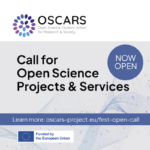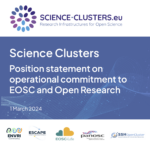Another milestone reached with the 1st PaNOSC annual meeting
The 1st PaNOSC annual meeting gathered 62 managers, IT experts, computational scientists and staff from European Photon and Neutron (PaN) sources and e-infrastructures partners in PaNOSC and ExPaNDS, as well as representatives of the EOSC Executive Board, to discuss the state of the project, its progress and plans for the upcoming years. The event, organized on 4-7 November 2019 in Trieste by CERIC-ERIC, allowed attendants to share information on open data policy, services for data catalogue and data analysis, simulation data systems and EOSC integration, as well as on FAIR open data and data policies at partners’ sites, both in plenary sessions and in WP-specific face-to-face meetings.

The 4-day meeting successfully met the expectations of the audience, and gave the chance to exchange opinions and experiences to all project’s participants and collaborators, as well as to brainstorm and exchange facility-specific information and requirements, towards the definition of the best solutions for reproducible FAIR data science.
Talks from contributors and invited speakers focused on a broad range of topics, spanning data management and analysis, Data Analysis as a Service, EOSC sustainability, Cloud procurement, the EOSC Federating Core, reproducible big data analytics, data transfer technologies, and much more.
Collaboration with other EOSC projects and clusters has been identified as one of the major goals for 2020 and beyond, to strengthen synergies and converge towards common solutions for Open Data Science. The example of PaNOSC and its sister project, ExPaNDS, is very emblematic in this sense. The two projects have implemented since their very start, an integrated approach for the benefit of the PaN community, by defining the domains of cooperation and closely working together in all technical work packages. Mutual participation in the projects’ and in EOSC governance bodies has also been proposed as a major action to further consolidate collaboration. A similar approach may be adopted also with other EOSC cluster projects, to join forces towards the construction of the EOSC for the scientific community across all disciplines.
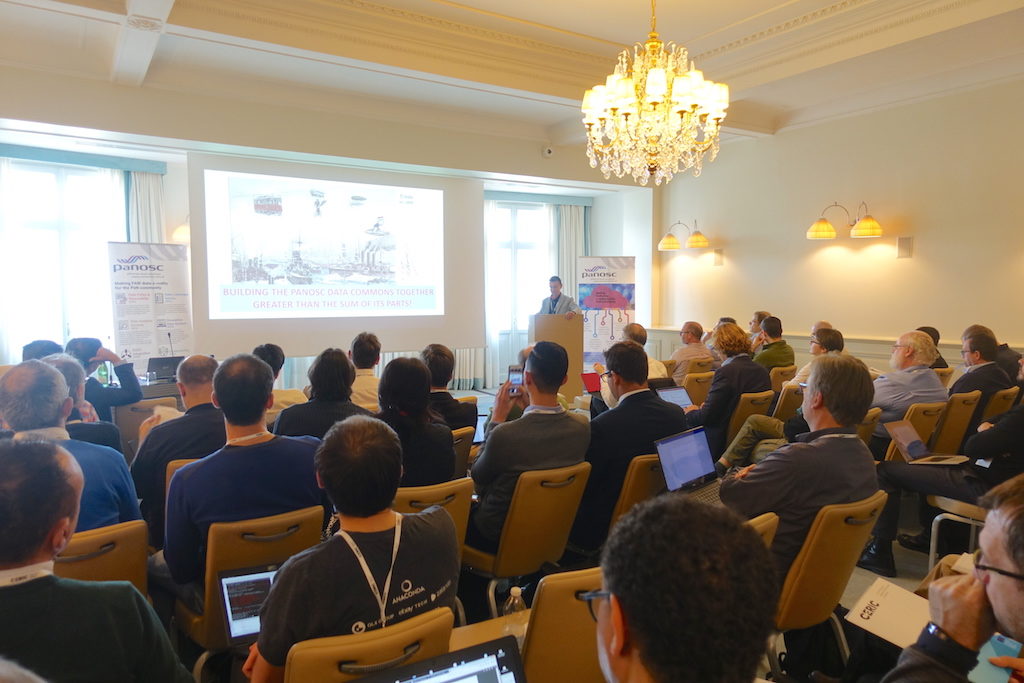
Project Coordinator, Andy Götz (ESRF) – Welcome Speech 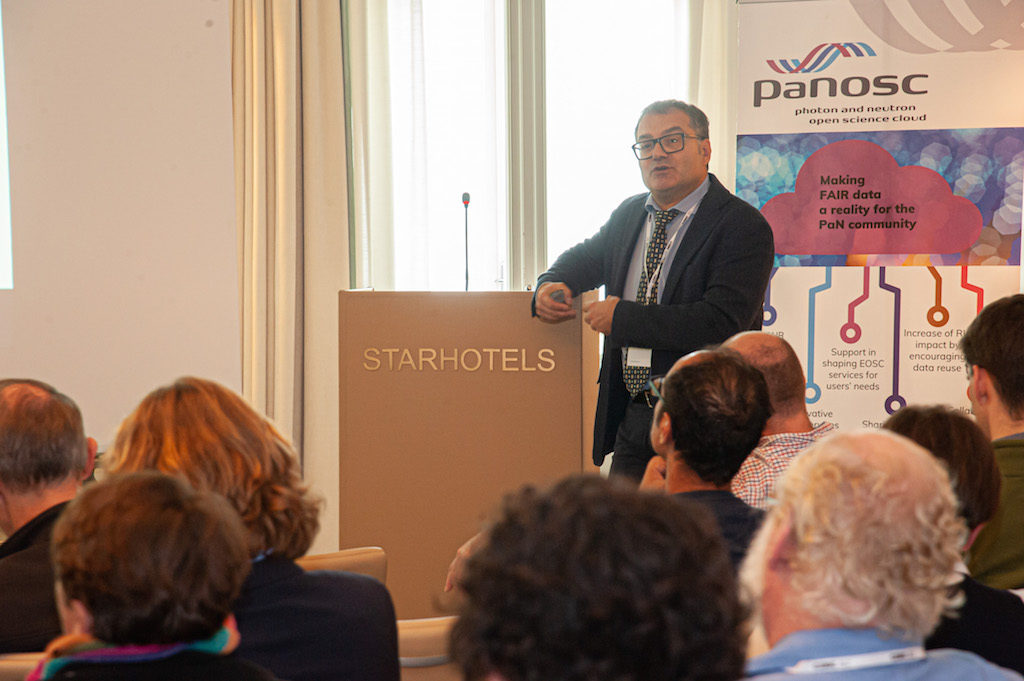
Roberto Pugliese (CERIC-ERIC) – Welcome speech 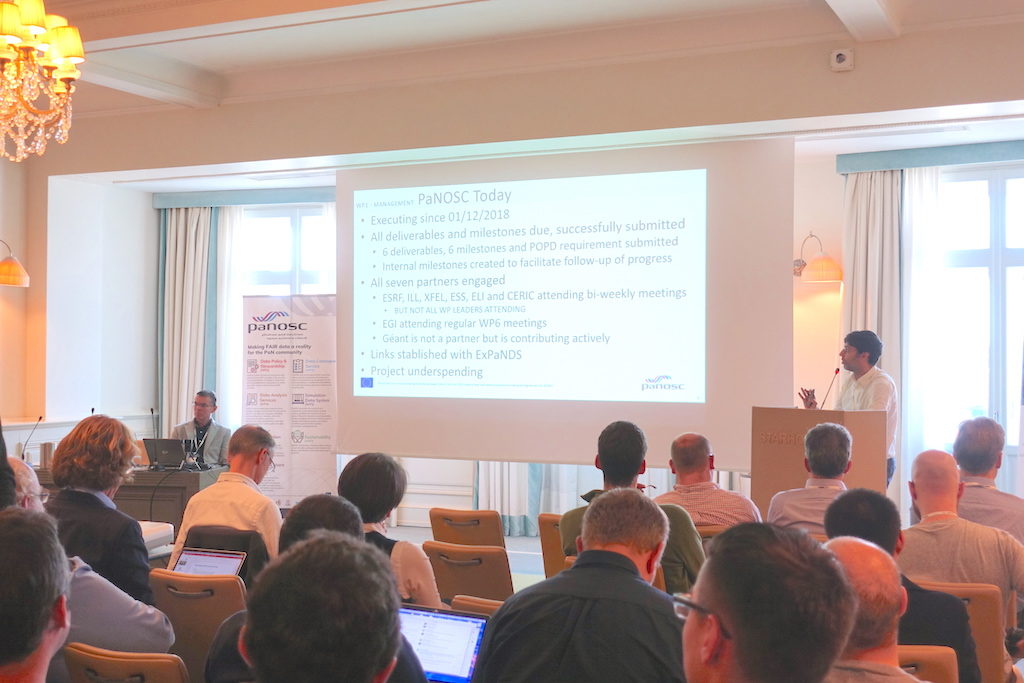
Project Manager and WP1 leader, Jordi Bodera Sempere – on WP1 Management 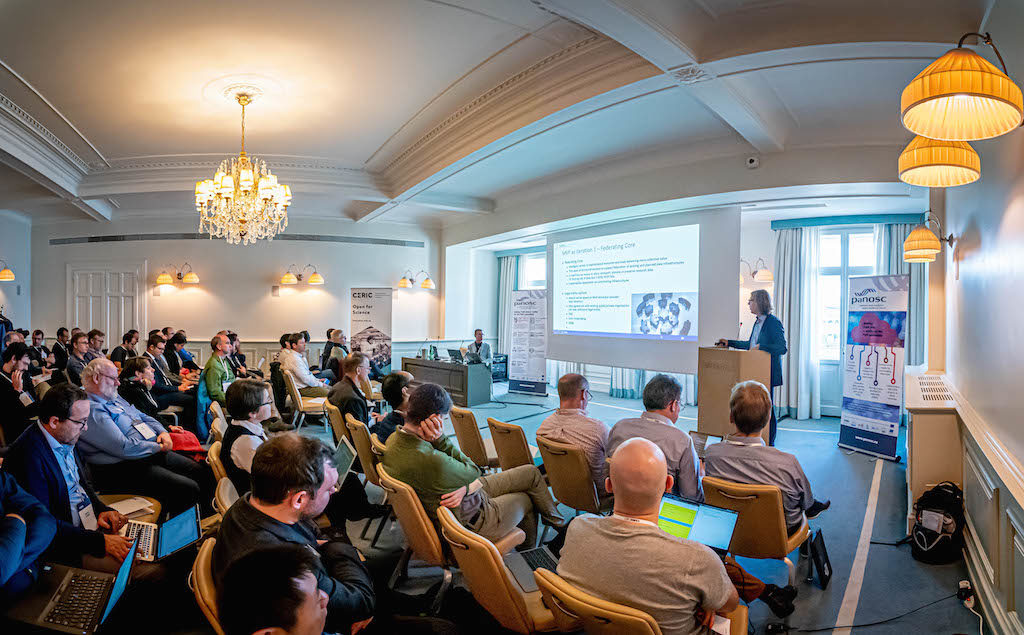
Rupert Lück (EMBL), co-chair of the EOSC Governance and Sustainability WG of the EOSC Executive Board 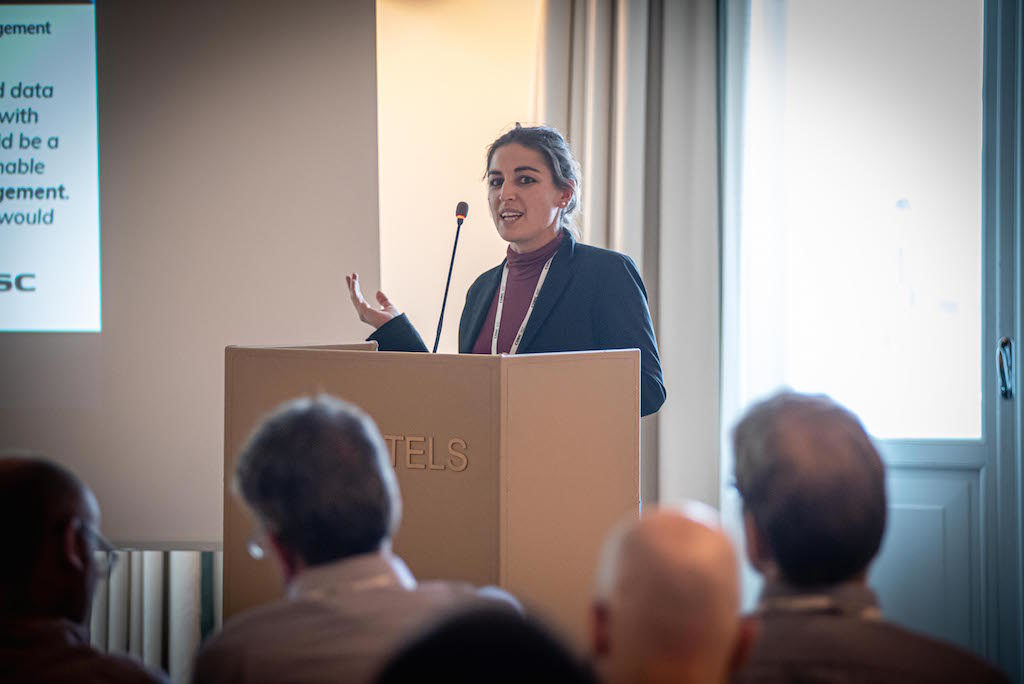
WP9 leader, Nicoletta Carboni (CERIC-ERIC) on WP9 – Outreach/Communication and Dissemination/Impact 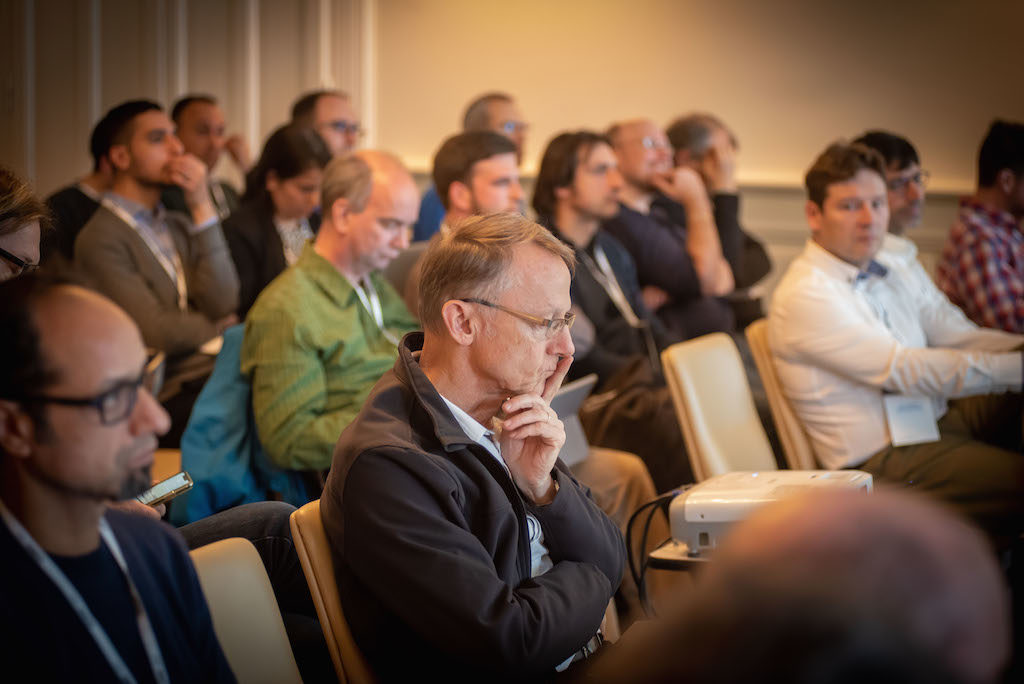
PaNOSC Executive Board member, Rudolf Dimper (ESRF)
A major effort has been made to further define the Open Data Policy Framework, starting from which photon and neutron facilities in both PaNOSC and ExPaNDS will build their open data policies to manage scientific data. During the meeting, a step forward has been made, with the release of an updated draft version of this document.
At the core of such framework, and of the EOSC, is a basic concept: data (and their metadata) need to be FAIR – FINDABLE, ACCESSIBLE, INTEROPERABLE, REPRODUCIBLE. Classifying research (meta) data and integrating them to federated catalogues is the first step to make this possible. The progress made in the development of a federated data catalogue was presented. In this regard, during the 1st year of the project, work has been carried out to define an API (Application Programming Interface) for the PaN community, allowing federation and exposure of metadata in a way that will enable search and facilitate access to data by researchers across scientific disciplines.
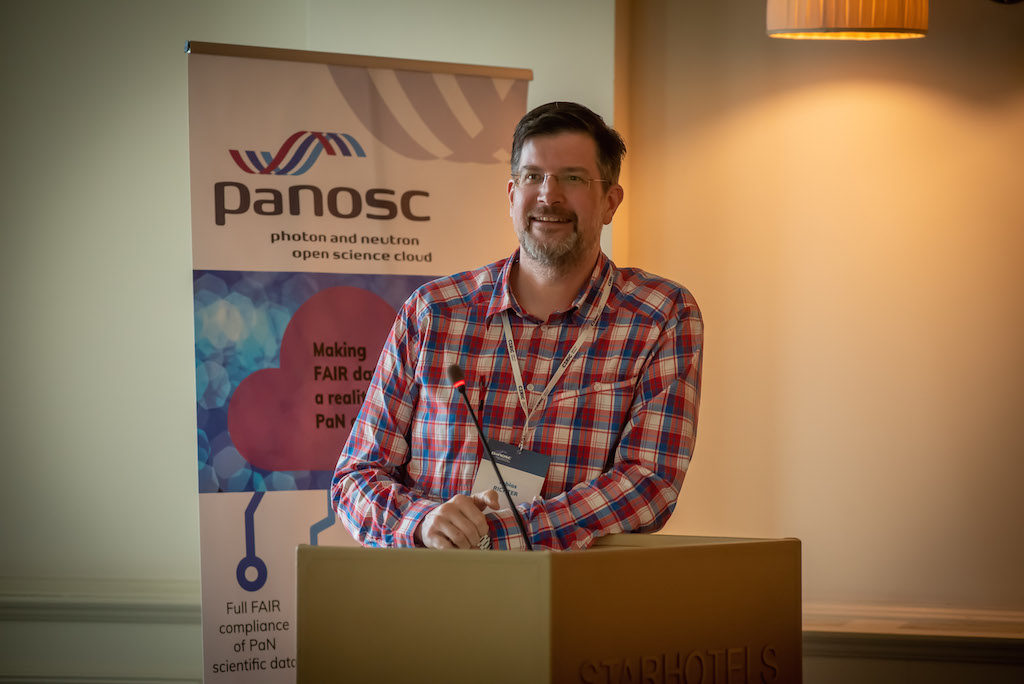
WP3 leader, Tobias Richter (ESS) on WP3 – Data Catalog Services 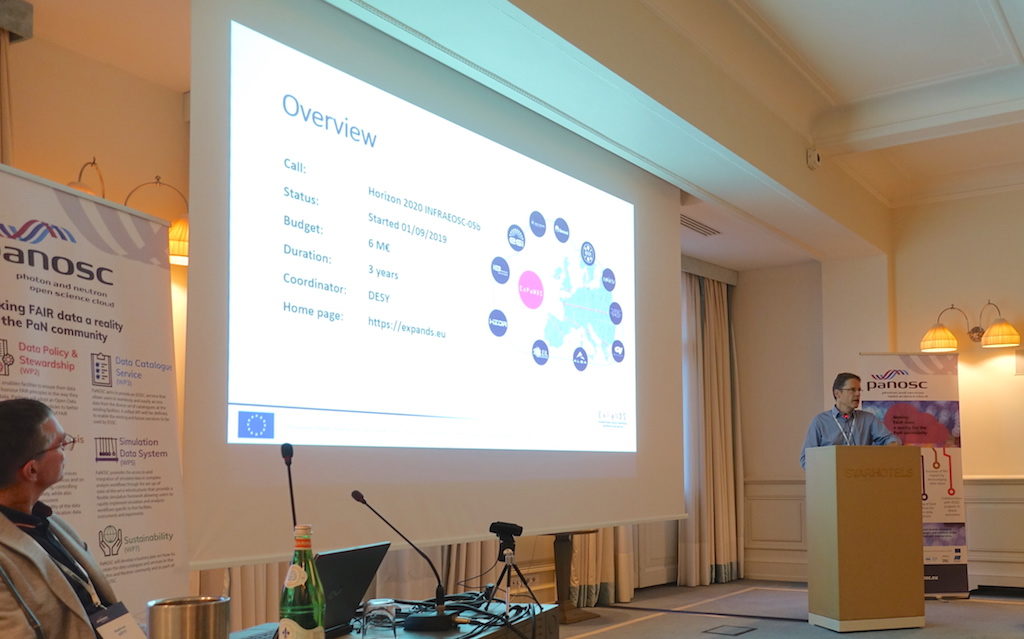
ExPaNDS coordinator, Knut Sander (DESY) on ExPaNDS 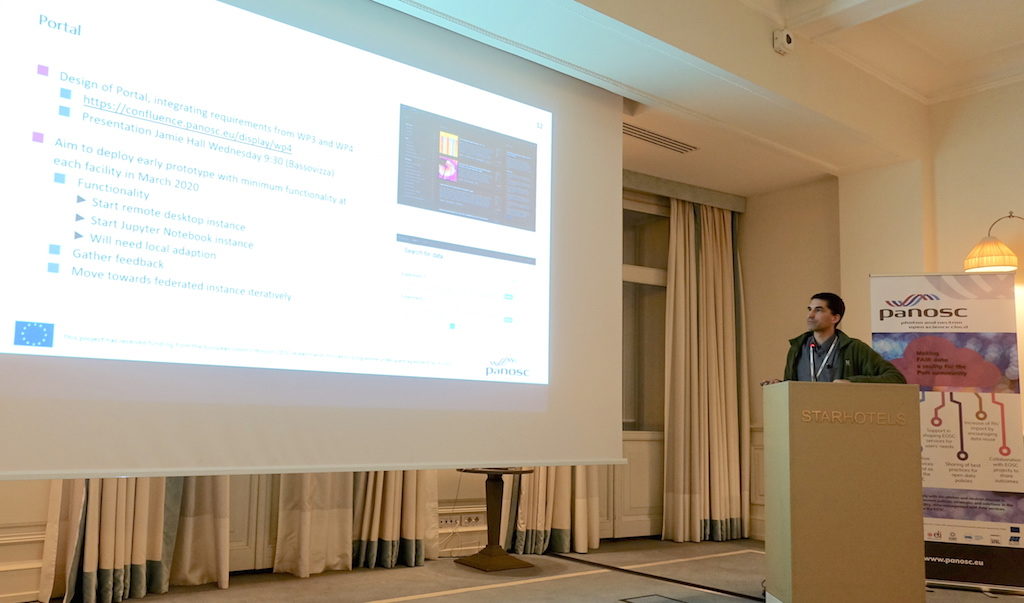
WP4 leader, Hans Fangohr (EU XFEL) on WP4 – Data Analysis Services 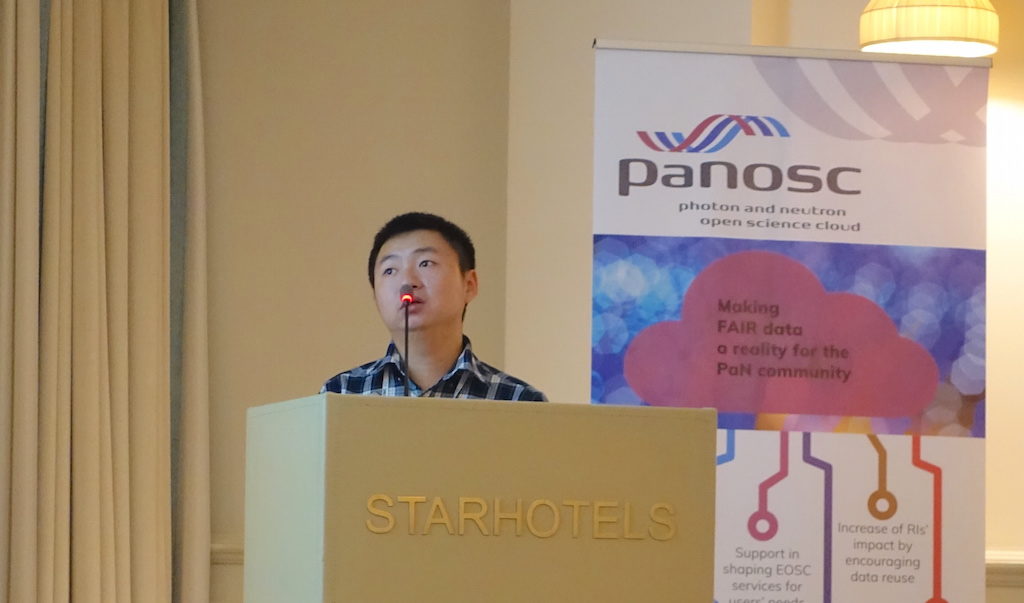
Juncheng E (EU XFEL) on WP5 – Virtual Neutron and X-Ray Laboratory, VINYL 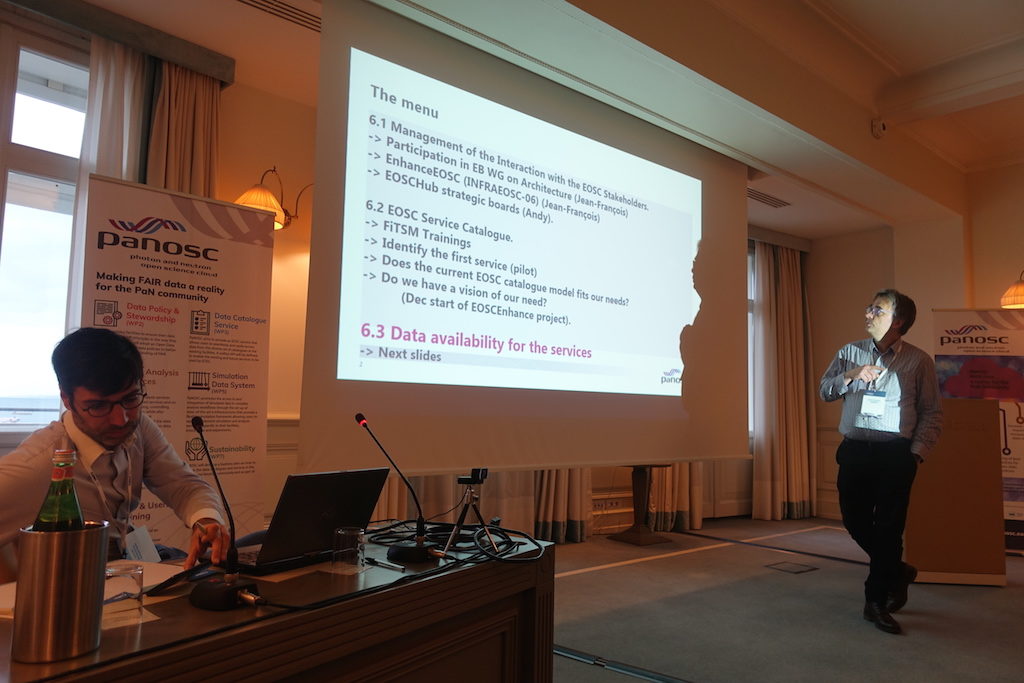
WP6 leader, Jean-François Perrin on WP6 – EOSC integration 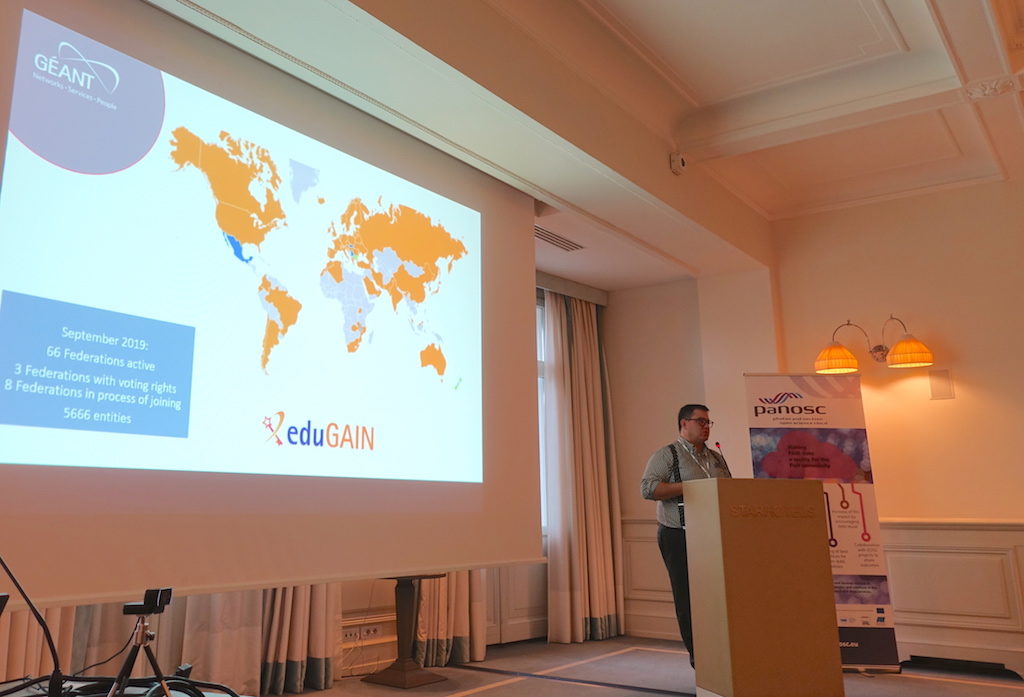
Christos Kanellopoulos (Géant) on AAI for PaNOSC
Participants in the meeting also got an overview of the functions and features of the technologies used at each facility in PaNOSC for the (re-)use of data, i.e., through data analysis and simulation with remote desktops and Jupyter Notebooks. In this domain, PaNOSC envisions the provision of a data analysis portal linking data sets to suggested data analysis and simulation procedures and to their execution, allowing to modify analysis interactively and to download new analysis results. Such portal will be a common interface to access analysis services, through a federated AAI (Authentication and Authorisation Infrastructure) and federated search tools. In addition, the roadmap towards the realization of the Virtual Neutron and X-Ray Laboratory foresees further development of already available simulation frameworks, such as SimEX, McStas and OASYS, which offer multiple tools in the same environment, for simulation of scientific experiments at photon and neutron facilities.
Training and engagement with users is another key element for the success of PaNOSC and of the EOSC. To this aim, participation in user meetings organized at PaN facilities in Europe is foreseen, to present the policies, services and training courses developed in PaNOSC and ExPaNDS, raise awareness about the projects, introduce FAIR data benefits for research, and collect users’ feedback about their understanding of and expectations from the EOSC.
Speaking about sustainability, some open questions still remain on the inputs for the cost model and the metrics to measure PaNOSC value-added.
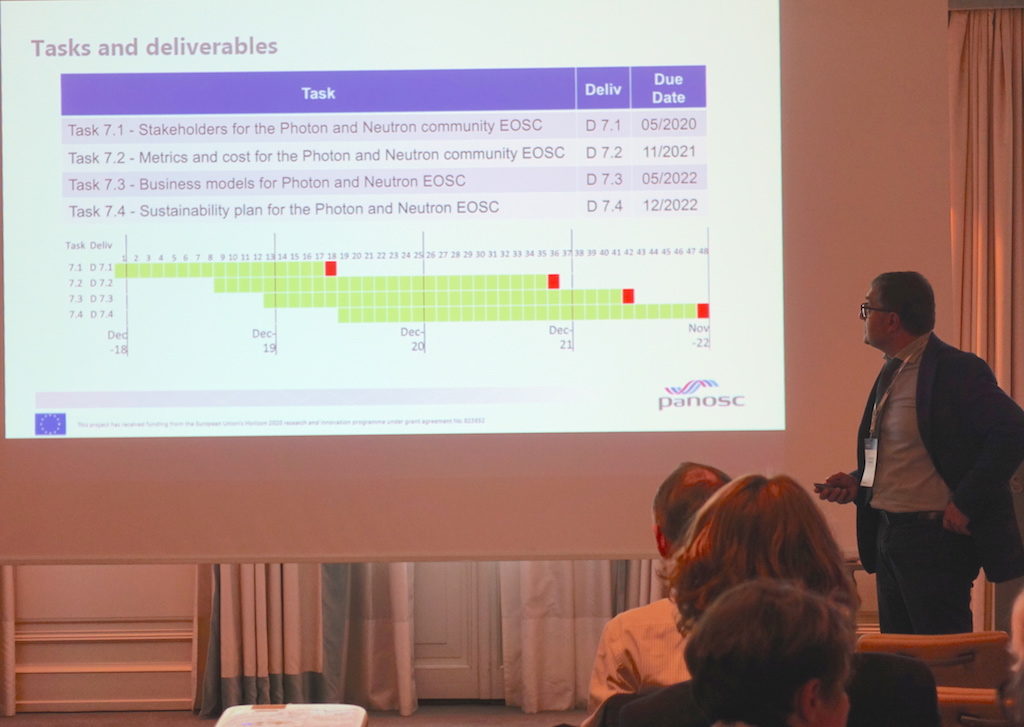
WP7 leader, Roberto Pugliese (CERIC-ERIC) on WP7 – Sustainability 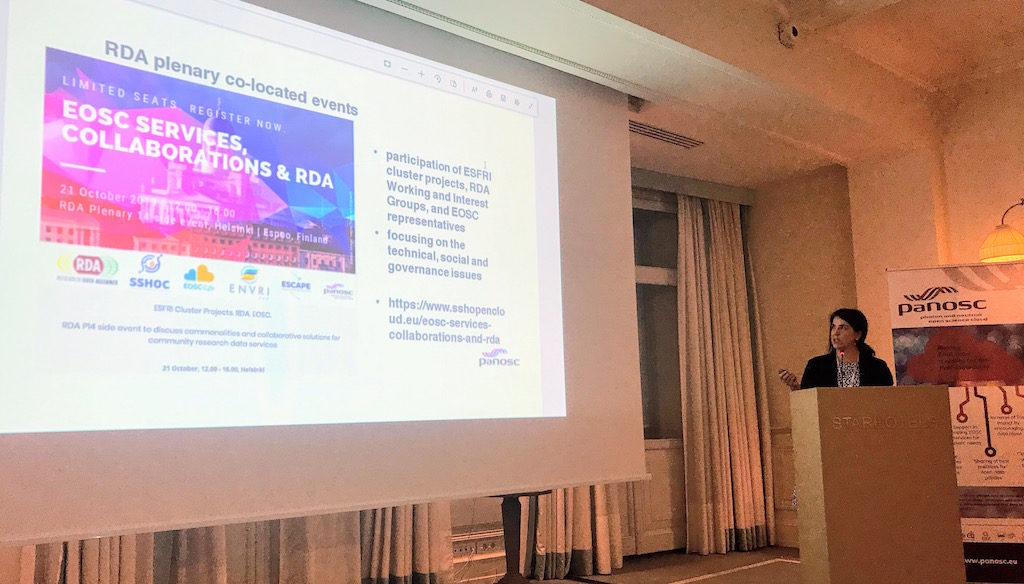
Ornela De Giacomo (CERIC-ERIC) – Report on RDA plenary meeting 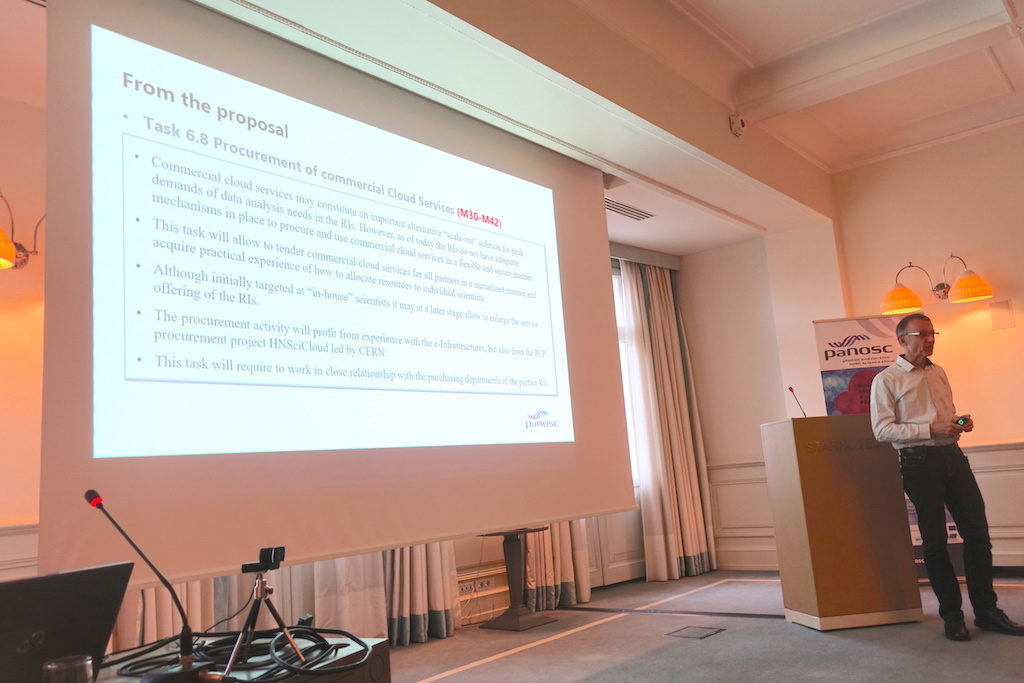
Rudolf Dimper (ESRF) on Cloud procurement for PaNOSC 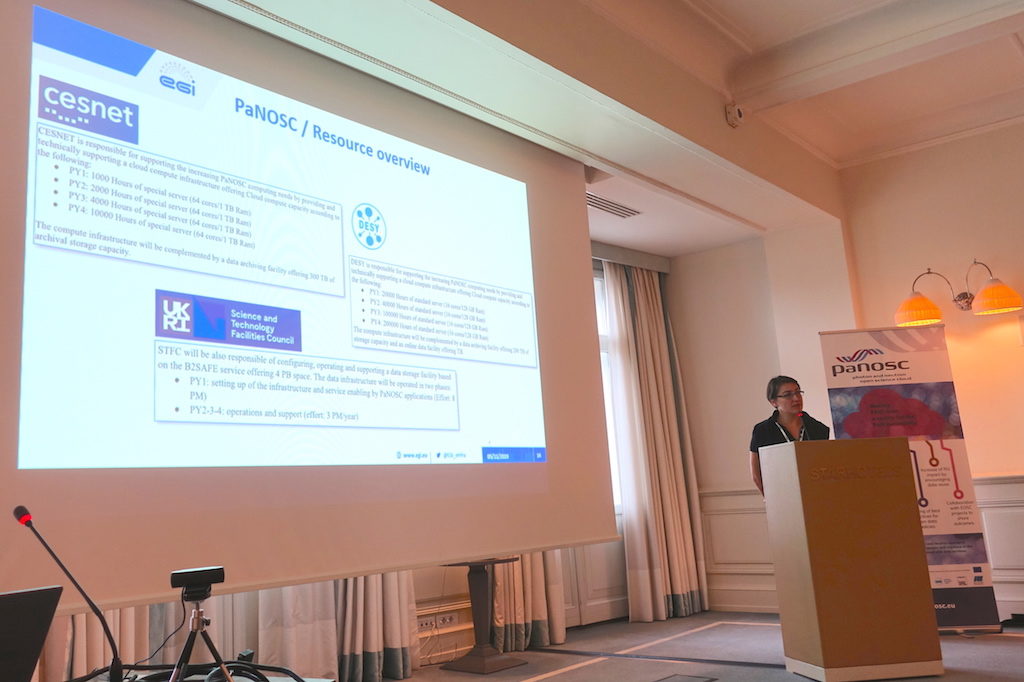
Tiziana Ferrari (EGI) on EGI Cloud resources 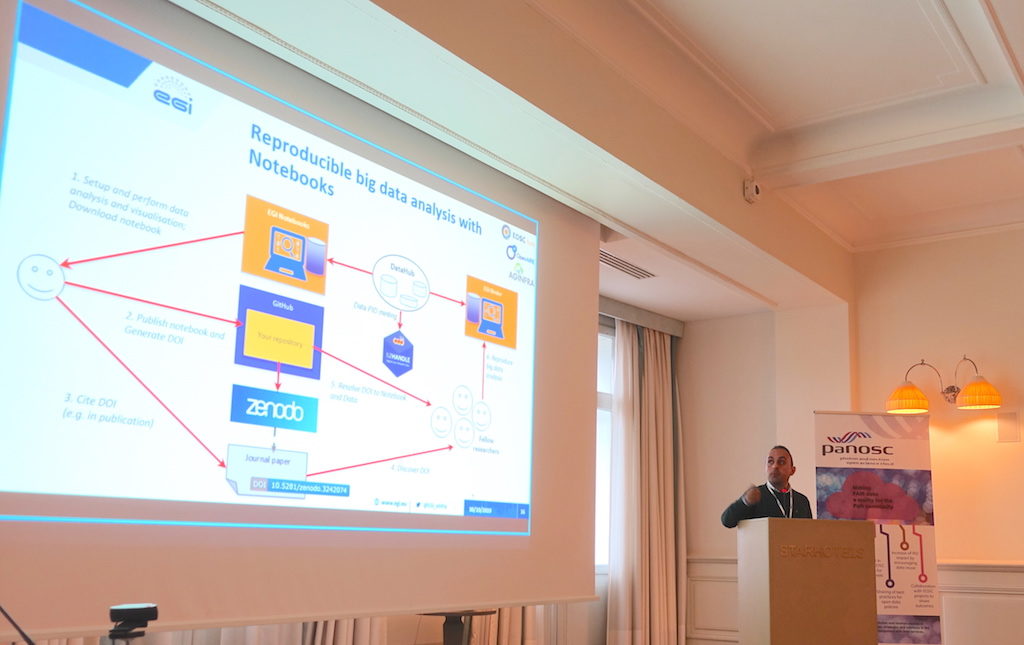
Giuseppe La Rocca (EGI) on Reproducible big data analytics 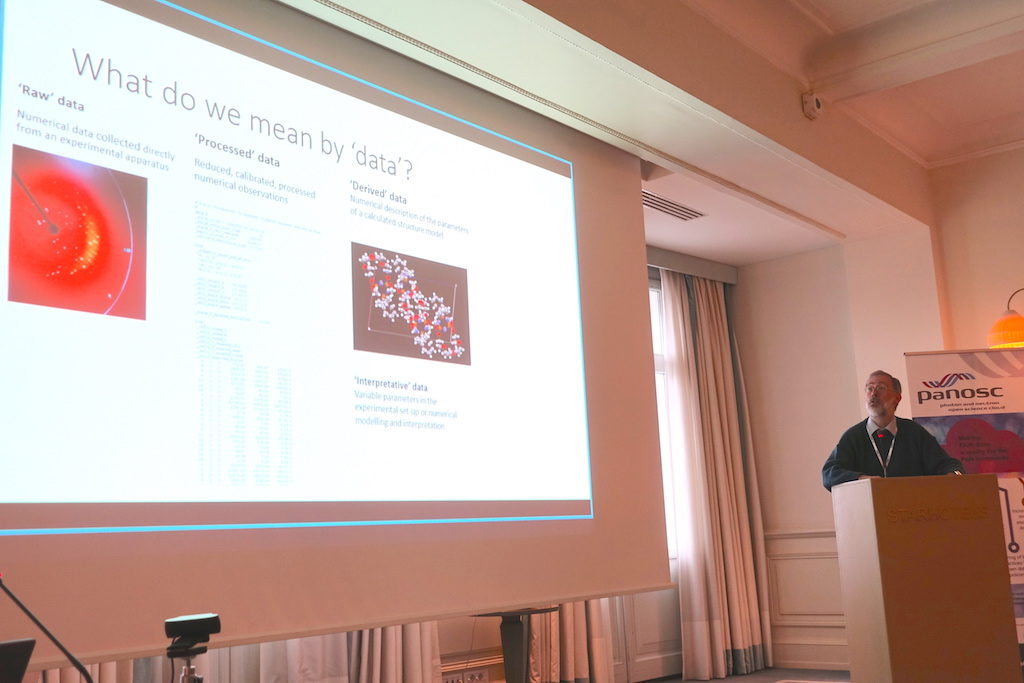
Brian McMahon (International Union of Chrystallography) on FAIR Crystallographic data
The way FAIR data are (planned to be) managed at the different partner institutions (CERIC-ERIC, ELI-DC, ESRF, ESS, EU-XFEL, ILL) has been a recurrent topic throughout the whole meeting, with useful exchanges of experiences and inputs on the possible improvements and ways for the best implementation of FAIR data at PaN facilities. An open discussion allowed participants to exchange their views on the added value of PaNOSC and the EOSC for the scientific community, and to provide feedback on the EOSC Vision Statement from PaNOSC, and on the services EOSC must provide in order to generalize the adoption of FAIR data at research infrastructures and provisioning of remote data analysis services.
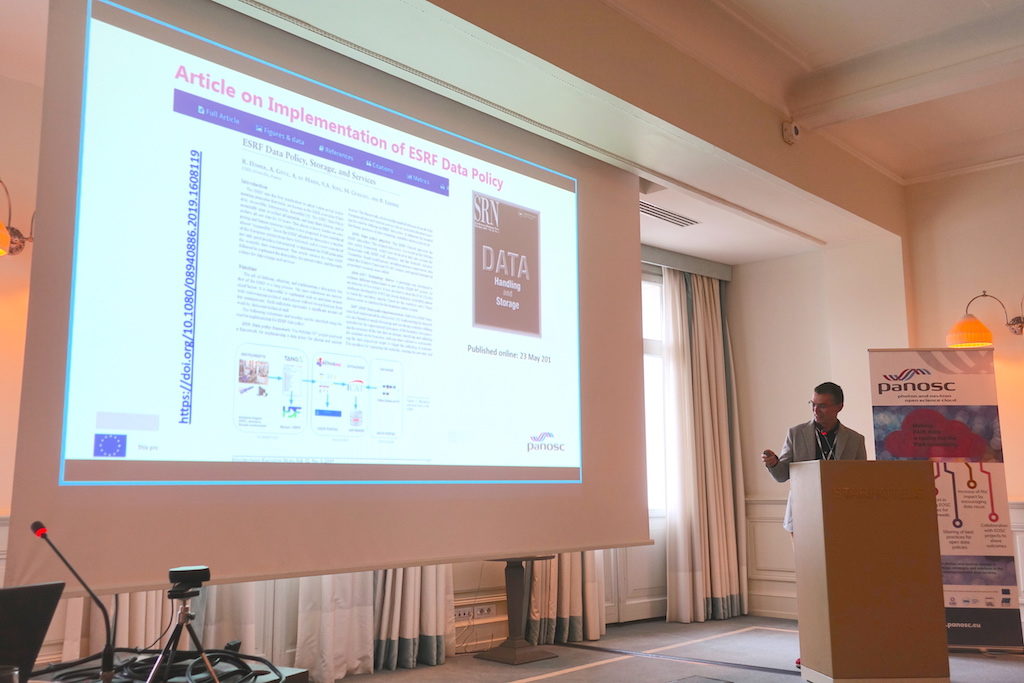
Andy Götz (ESRF) on FAIR Data @ ESRF 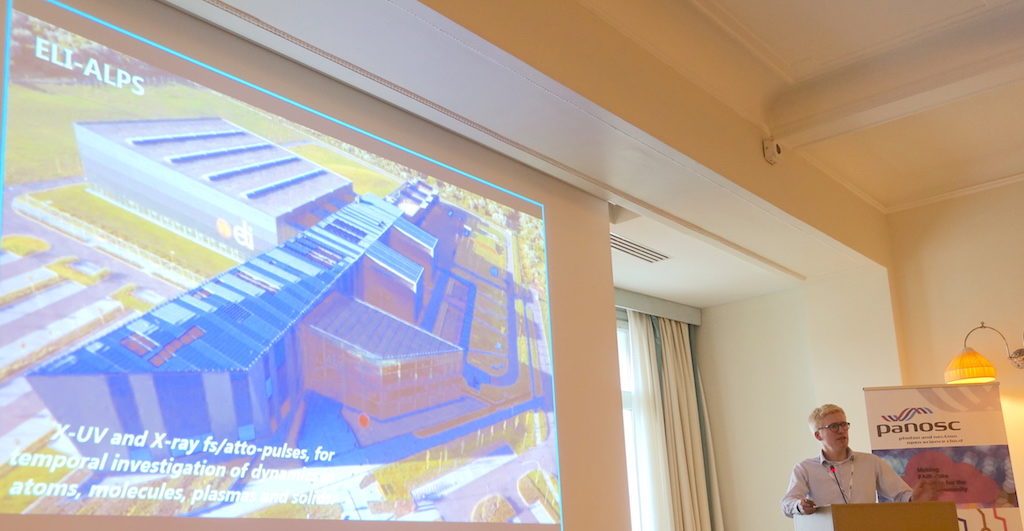
Florian Gliksohn (ELI DC) on FAIR data @ELI 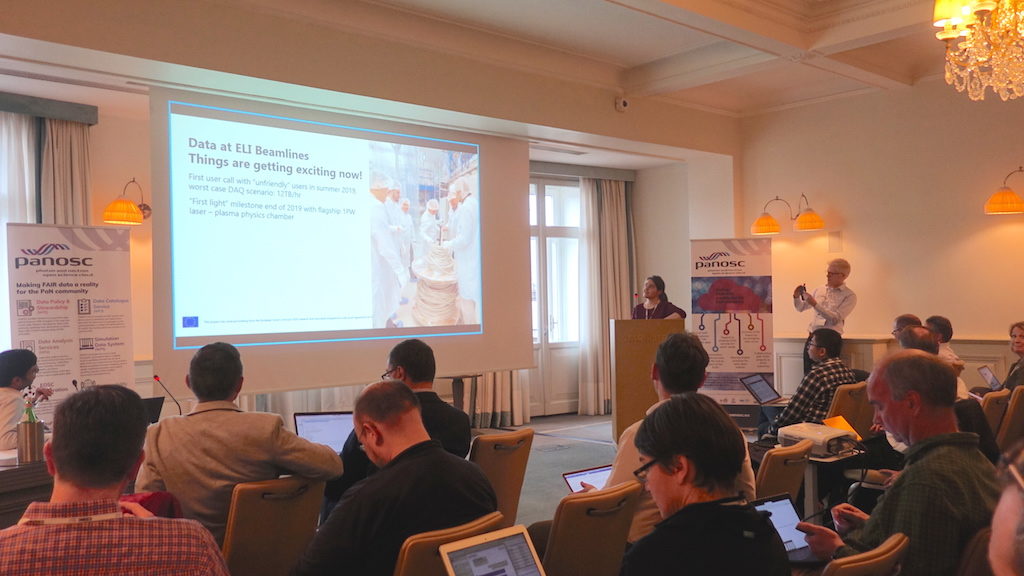
Birgit Plötzeneder (ELI Beamlines) on FAIR data @ELI 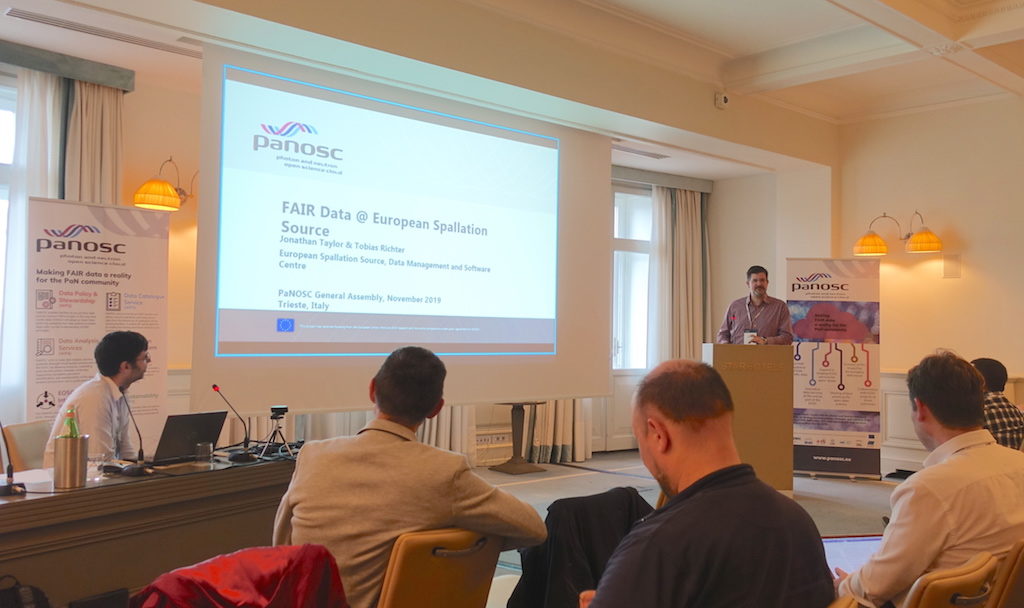
Tobias Richter (ESS ERIC) on FAIR data @ESS 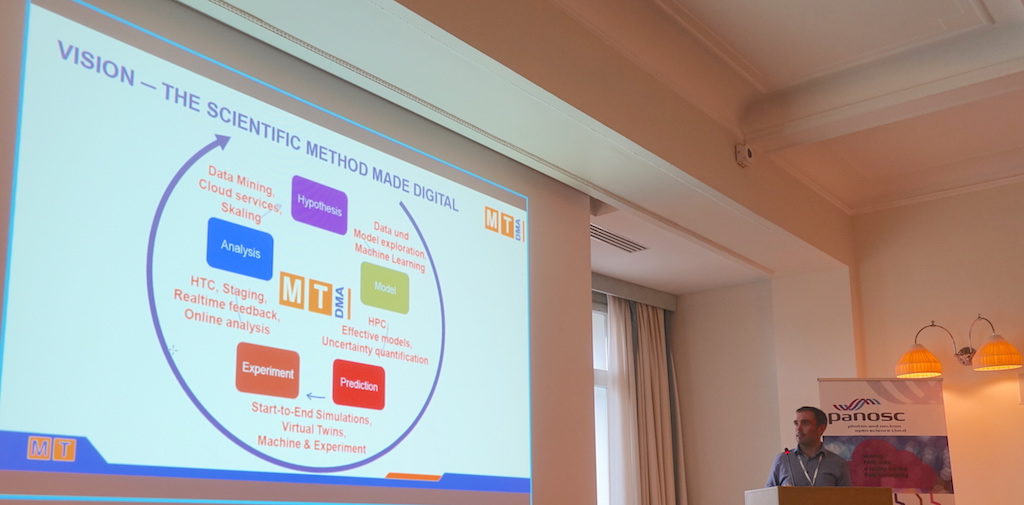
Michael Bussman (Center for Advanced Systems Understanding) on Data Management and Analysis 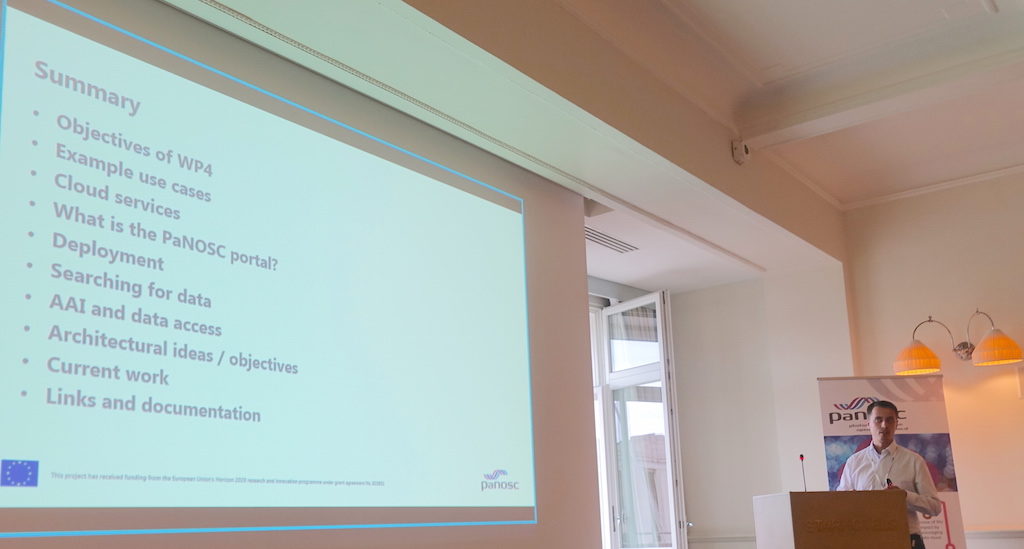
WP4 contributor, Jamie Hall (ILL) on the PaNOSC portal
Download the agenda of the event from the links below:
All presentations are available on Github and on the Indico event’s website.
